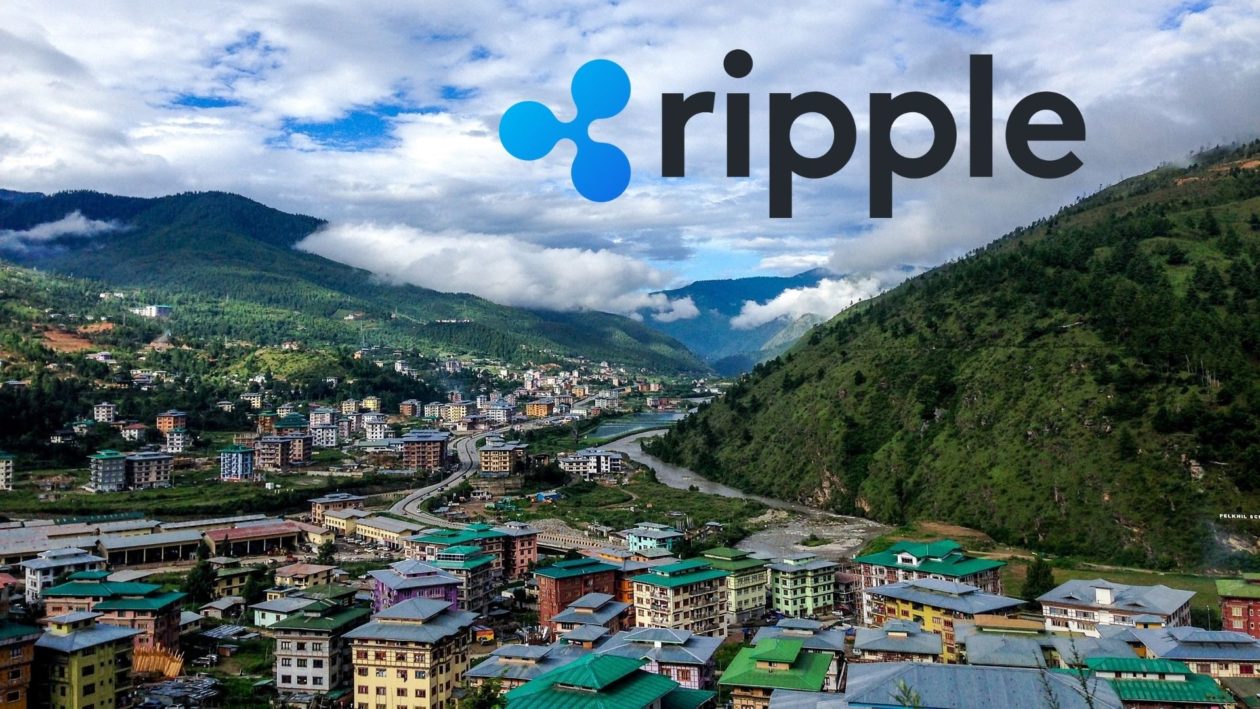Ripple, a San Francisco-based blockchain payments company, today announced that it would partner with Bhutan’s central bank, the Royal Monetary Authority (RMA), to pilot a central bank digital currency using Ripple’s CBDC Private Ledger.
As part of its mission to increase financial inclusion in Bhutan — which the Eastern Himalayan kingdom defines as adults having a bank account — from 67% currently to 85% by 2023 and to streamline financial transactions, the RMA will pilot retail, cross-border and wholesale use cases for a digital ngultrum using Ripple’s CBDC Private Ledger, according to a statement shared with Forkast.News.
“Our collaboration with Ripple is testament to the potential of CBDCs to provide an alternative and sustainable digital payment instrument in Bhutan,” said Yangchen Tshogyel, deputy governor of the Royal Monetary Authority of Bhutan, in the statement. “Ripple’s groundbreaking technology will allow for the experimentation of a CBDC with our existing payments infrastructure — while ensuring efficient and cost-effective cross-border transfers.”
Sustainability was a key consideration for Bhutan in hiring Ripple, the statement said. According to Ripple, its CBDC Private Ledger — based on the public, open-source XRP Ledger — is carbon-neutral and 120,000x more efficient than proof-of-work blockchains like Bitcoin and the current version of Ethereum.
Bhutan’s CBDC pilot comes as central banks around the world increasingly explore and develop CBDCs amid the rise of private cryptocurrencies like Bitcoin and stablecoins like Tether’s USDT. A survey of central banks by the Bank for International Settlements (BIS) found that 86% were actively researching CBDCs, 60% were experimenting with the technology and 14% were deploying pilot projects.
In an Official Monetary and Financial Institutions Forum (OMFIF) survey of central banks and financial regulators in Asia, 90% of respondents believed that digital payments would be the core competency in extending basic financial inclusion. “CBDCs could form the backbone of a new digital payment system by enabling broad access and providing strong data governance and privacy standards,” Benoît Cœuré, head of the BIS Innovation Hub, said in a statement. “They are the best way to promote the public interest case for digital money.”
See related article: What lies ahead for CBDCs, Bitcoin and other digital currencies?
Ripple’s latest partnership with Bhutan is a new milestone in its business evolution — first announced in March — to broaden uses for its XRP Ledger technology beyond digital payments and remittances to CBDCs. Ripple’s CBDC Private Ledger will enable central banks to “access a network of CBDC Ledgers that enables full settlement interoperability while ensuring monetary and technological independence,” the company said.
See related article: Ripple recasts embattled XRP as a ‘bridge’ currency for CBDCs
Court denies Ripple’s request for SEC’s trading preclearance decisions
As Ripple wins over foreign governments and companies to expand its payments business, in the United States, Ripple remains deeply embroiled in a lawsuit with the U.S. Securities and Exchange Commission (SEC) over its alleged unregistered securities offering of XRP worth over US$1.38 billion.
Earlier this week, a judge ruled to deny Ripple’s request for the SEC’s trading preclearance decisions with respect to its employees’ transactions in Bitcoin, Ether or XRP as well as their annual certifications regarding their XRP holdings.
Ripple had argued that the information was important to establishing the lack of clarity regarding XRP’s status and whether the SEC considered XRP to be a security — evidence that would be relevant to its fair notice defense and potentially undermine the SEC’s allegations that the individual co-defendants CEO Brad Garlinghouse and executive chairman Chris Larsen acted recklessly and allegedly aided and abetted Ripple’s violations.
In her written ruling, U.S. Magistrate Judge Sarah Netburn who had, in June, granted Ripple’s request for the SEC’s trading policies on XRP and other cryptocurrencies, noted that the SEC had already produced a January 16, 2018 memorandum that provided ethics guidance to SEC employees on digital assets and that the SEC did not have any trading policy prior to the issuance of the memorandum.
The judge also noted that XRP had been added to the SEC’s “Watch List” — a list of entities potentially subject to supplemental ethics rules — on April 13, 2018, and SEC employees could no longer trade XRP after the formal order of investigation was issued as to Ripple on March 9, 2019.
“Because the preclearance process does not consider whether an asset is a security, Defendants have not shown that such individual trading decisions bear on the issues in this case,” Netburn wrote. “Because the data related to Ethics Counsel’s preclearance decisions is not sufficiently probative, it cannot justify the intrusion into SEC employees’ financial conduct, even if anonymized or aggregated.”
“As to the annual certifications that Defendants seek, Congress has presumptively prohibited disclosure of such financial information through federal privacy statutes and regulations in order to maintain government employees’ privacy,” Netburn added.
Although Netburn denied Ripple’s request for the SEC’s trading preclearance decisions, the judge noted that “the SEC’s policies (or absence of policies) may provide relevant evidence related to fair notice or recklessness” and in her ruling directed the SEC to provide Ripple with documentation supporting its SEC counsel’s statement that SEC employees could no longer trade XRP since it began investigating Ripple in 2019.
XRP — the sixth largest cryptocurrency by market value — is trading at US$0.99 as of publishing time, up 7% in the past 24 hours, according to CoinGecko data.





